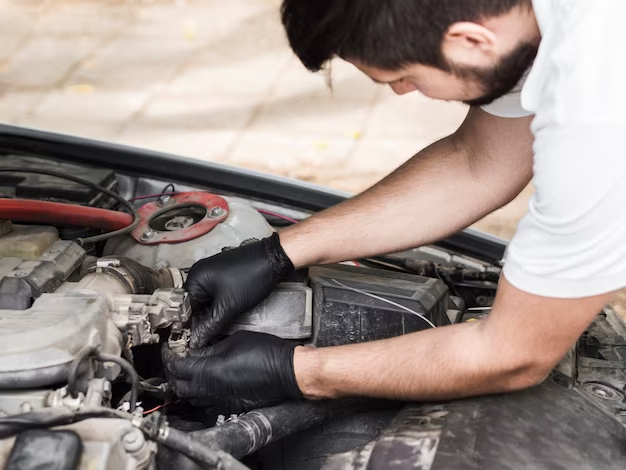Many car owners these days are concerned about the environmental impact of their vehicles. Hence, car manufacturers have introduced the Diesel Particulate Filter (DPF) for diesel engines to reduce harmful emissions. But what exactly is a DPF, and how does it affect your car’s performance? What are the advantages and disadvantages of DPF for your car?
DPF traps diesel particulates to improve your car’s performance, fuel efficiency, and emission reduction. However, installing the DPF can be costlier and requires regular maintenance.
Thus, you should consider its benefits and drawbacks before getting one for your car. As your premium partner, we will discuss the pros and cons of having DPF in vehicles.
Advantages of DPF For Car:
When you install the new DPF, you will save the environment from diesel and harmful gas emissions. It will also boost fuel economy and extend the life of your car engine. In addition to the DPF system, maintaining high-quality components like diesel injectors is crucial for ensuring optimal engine performance and fuel efficiency.
Reduces harmful emissions
DPF will significantly reduce harmful emissions from diesel vehicles. As the name suggests, the DPF’s primary function is to trap and remove particulate matter from the exhaust gases. The DPF can remove soot and other pollutants from the engine before they are emitted into the atmosphere.
Hence, fewer harmful particles will be released into the environment, contributing to cleaner air quality and boosting engine efficiency.
Enhances fuel efficiency
The filter inside the DPF will capture and remove the diesel particulates from the exhaust system. So, a properly functioning DPF will further improve fuel efficiency in diesel engines. It will also reduce the soot accumulation inside the engine.
Therefore, due to reduced soot accumulation, there will be less buildup in the engine’s internal components, making the engine less likely to get clogged. The DPF kit contributes to smoother airflow and combustion processes, improving fuel performance and mileage. You can expect a 10% to 15% improvement in fuel efficiency with the DPF kit.
Extends engine life
Installing a DPF can improve engine health in the long term. It will prevent excessive soot buildup within the engine. So, the DPF kit will maintain optimal operating conditions for the engine.
It will automatically reduce wear on critical components such as pistons, valves, and turbochargers, ultimately extending the lifespan of your engine.
Compliance with regulations
Many countries have implemented stringent emission standards for vehicles, particularly those powered by diesel fuel. It is essential in the American states, European countries, and many developed Asian countries.
If you drive your car in these countries, it is crucial to have a functional DPF. It will ensure that your vehicle meets these regulatory requirements for emissions in those countries. Hence, you can drive your car without any legal repercussions or fines. It will also save you from worries.
Potential resale value
In today’s environmentally conscious market, a car equipped with an effective DPF system is vital. It may increase its resale value compared to vehicles without one installed. Buyers are becoming more aware of their carbon footprint and are willing to invest in greener options when purchasing used cars.
Disadvantages of DPF
Although DPF is essential to reducing your car’s carbon footprint, its effects are not always positive. At times, DPF may affect the performance of your engine.
Reduced engine torque
One of the major drawbacks of DPF is the reduced torque. It will also restrict the intake and exhaust of the engine, which further drops its performance. However, you can combat the situation by installing a l5p delete kit.
It will improve torque and ensure your engine operates at its optimal capacity for maximum driving comfort. Also, with the DPF delete kit, your engine intake will improve, which is crucial for off-road riding. If you drive frequently in off-road areas and mountains and love the sound of the exhaust, the DPF delete kit will be a valuable investment.
Costly Maintenance
One of the main drawbacks of a Diesel Particulate Filter (DPF) is the high cost of maintenance and repairs. Over time, soot and ash accumulate in the filter. This can clog the DPF filter and reduce engine performance. So, both the engine and DPF will require regular cleaning or replacement. This can be a costly process, particularly if it occurs frequently.
Conclusion
The DPF in your car is crucial for improving fuel efficiency and reducing gas emissions. However, it also restricts your car’s torque and intake capacity. Therefore, consider your driving preference to determine whether you want a DPF in your vehicle. Additionally, you should consider your local traffic rules regarding carbon emissions, as installing a DPF delete kit can increase gas emissions.







